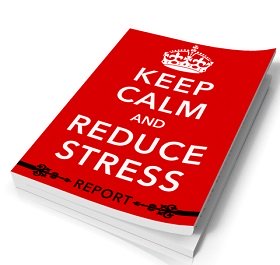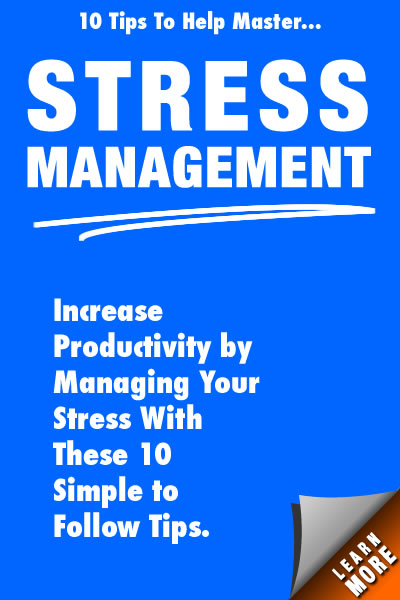How to Manage Stress
with Biofeedback

by Claudia Juarez
People can manage stress with biofeedback techniques. Biofeedback is a treatment technique in which people can improve their health by using signals generated by their own bodies. For some people, biofeedback works as a mirror, in which the person, looking at signals from her body, can notice patterns she may not have noticed before.
What is Biofeedback?
Chances are you have used biofeedback yourself. Have you used a thermometer to check to see if you had an elevated temperature? Have you visited a physician’s office and had your blood pressure taken to see if you had elevated blood pressure? The thermometer tells you whether you're running a fever, the cuff tells you if you have high blood pressure. Both devices "feed back" information about your body's condition, and you can take measures to improve the situation. These are real life examples of how you manage stress with biofeedback.
What biofeedback does is measure these signals with help from technology, in order to help people to be conscious of their stress conditions. It is quite difficult for some people because they don’t even realize they are under stress. When a person is under stress, the body provides signs to tell us. The heart rate can increase, breathing can become shallow, and body muscles can become tense.
When people become aware of how their bodies react to stress, then learning about how to manage their reactions is the next step. They manage stress with biofeedback techniques when they use the physical reactions as signals and learn to modify those reactions.
How Biofeedback Developed
In the late 1960’s through the 1970’s, a great amount of research was done in the field of biofeedback and how it could be beneficial in treating various types of diseases including stress-related diseases. It was found that humans could learn to control, or self-regulate, some functions within their bodies that had been considered involuntary, such as heart rate, blood pressure or breathing rates.
Biofeedback has been used for many years in different contexts. It is very helpful to treat many disorders such as Attention Deficit Hyperactivity Disorder (ADHD), Post Traumatic Stress Disorder (PTSD), etc. Now we know people can successfully manage stress with biofeedback.
Let’s look at an example. A psychologist monitors a patient with a device such as a skin temperature monitoring tool, sweat gland monitoring tool or an Electroencephalography (EEG) monitor which measures brain activity. When a person is relaxed, the biofeedback equipment displays a specific result. But, if the person shifts from one relaxed state to another, more stressed state, the devices will reveal the changes. By being able to see what the machine indicates, the person can train herself to understand the feelings. The person can learn to manage stress with biofeedback. With the results from the biofeedback machines the psychologist and the patient can talk about the thoughts and emotions producing these changes.
With a help of a psychologist, in a few sessions, people can normally get control over their feelings and physiological signs. But it is not magic. People need to learn about themselves and practice strategies to manage stress with biofeedback.
Managing Stress with Biofeedback is An Important Strategy
Managing stress with biofeedback can help people be in control over the damaging effects from life stressors. Many biofeedback studies actually indicate that relaxation techniques such as meditation, deep breathing techniques, and yoga help people learn to control their bodily responses including heart rate and blood pressure. Biofeedback can reinforce good respiration and cardiac patterns. Biofeedback also gives you, through feedback, a clear measurement of how much you are relaxed.
Biofeedback is Important for Women
Women often find it difficult to handle the body’s signs of stress. Now there are some female conditions as fibromyalgia and cardiomyopathy, in which stress is an important contributing factor. Stress can also increase a risk to develop breast cancer although its relationship can’t be proven yet.
Women face many daily stressful situations which can have very negative health results. Women who manage stress with biofeedback techniques limit the damaging physical effects of life stressors. They also find that they can self-regulate their health and have more control over their own reactions to life stressors.
About the Author, Claudia Juarez
Claudia Juarez is a licensed psychologist focused on providing stress management and peak performance services. She specializes in work related stress, women's issues and high performance in the workplace. She has a Master’s Degree in Social Communication, a Bachelor’s Degree in Psychology specializing in cognitive behavioral therapy, and she is a member of the International Society of Neurofeedback and Research. Claudia researches new technologies for improving stress management as she works with corporations and high-level executives. She is a nationally recognized speaker. She resides in Mexico with her husband and two young boys. Email: claudiajuarez@transformatuestres.com
Join Calm Starts Here, and receive FREE How to Get a Good Night's Rest and Stop Worrying.
CD Store


Share this Page on SheToldMe.com
Become a FaceBook Fan










